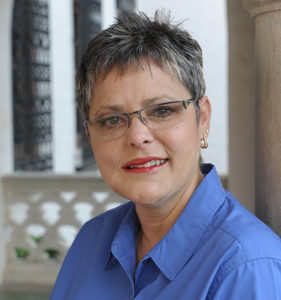• Nilka Avilés, Ed.D. • IDRA Newsletter • November-December 2021 •
 Reflection is part of the learning process by engaging the mind in exploring and examining our understandings, observations, experiences and interactions. It helps us increase awareness to create meaning to move forward with our actions. In other words, reflection affords us the opportunity to have internal check-ins that help us think clearly to grow.
Reflection is part of the learning process by engaging the mind in exploring and examining our understandings, observations, experiences and interactions. It helps us increase awareness to create meaning to move forward with our actions. In other words, reflection affords us the opportunity to have internal check-ins that help us think clearly to grow.
In our personal growth, our life advances when we take time regularly to examine our thoughts, beliefs, feelings and actions. The same is true for our professional growth among educators and instructional leaders.
Through IDRA’s School TurnAround and Re-energizing for Success (STAARS) Leaders project, we worked with a school district to overcome persistent hurdles in a set of turnaround campuses. After implementing these school leadership coaching best practices for three years, each of the schools succeeded in obtaining full state accreditation for meeting state standards (Avilés, 2020). Reflection was one of the best practices used in the project, and thus we carried it forward into our new Re-energizing Leadership to Achieve Greater Student Success project with two other school districts.
When you engage in self-reflection, it clears your brain from unnecessary thoughts and feelings, and it highlights what essentially adds value to our life or career tasks. It gives you the opportunity to dive deeper into who you are. There are certain factors to consider when reflecting:
- Think of a different perspective. If you are stuck with a particular frame of mind try to internally seek other perspectives.
- Keep your focus on the big picture. Do not worry about insignificant details but ensure that what you are thinking and doing is aligned to your vision and broad goals.
- Pinpoint self-awareness. The more you know about yourself and your priorities, the more you understand what you are all about and what you want others to see in you.
- Be prepared to uncover your fears, predispositions or implicit biases. You want to be true and challenge yourself and enable yourself to be liberated from negative thoughts or mental constructs that may hurt you or others. You want to be able to inspire yourself and motivate those around you.
- Make conscious and healthier decisions with a clear mind. Reflections give the mind the opportunity to approach situations with better and with well-defined perspectives.
Self-reflection is essential for leaders in their path toward continuous growth and improvement. Through the process of reflection, leaders can reinforce the school’s vision and core values. Leaders gain insights about their practices that can foster enhancement of leadership skillsets and competencies that can transform the school.
Leaders influence the behaviors, attitudes and beliefs of the people around them. Everyone benefits when leaders practice self-reflection. When engaging in reflection, there are questions to ask yourself to grow personally and professionally:
- How do I represent myself, and how do others see me?
- What are my core values, beliefs, goals and expectations?
- Am I doing things regularly that are adding value to my life – personally and professionally?
- What are key areas I need to work on to grow personally and professionally?
- Are there any beliefs or conscious and unconscious thoughts that are limiting me?
- Where do I see myself in a few years?
- What are three things or skills that I need to learn to be at my best?
- What impression do I wish to create as a leader?
- What impact do I wish to make as a leader in my community of practice?
One suggestion for school leaders is to schedule time intentionally and regularly for individual and collective reflection. Put it on your calendar to create opportunities for thinking and reflection by scheduling protected time for it. Use 30- to 40-minute walks to reflect or read articles or books for personal contemplation. Some people even do their best thinking over a cup of coffee in a quiet space.
You also may benefit from dialogue with a trusted partner and discuss questions, observations, concerns and challenges to gain insights. Or in addition to the questions above, you can reflect in writing or in conversation using these three questions: What was the situation and the outcome? Why was the outcome significant? What are the next steps I need to take?
Reflection is a useful tool for deeper learning and self-discovery. Find true meaning in your personal and professional life as there is strength and value to be found in reflection.
Resources
Avilés, N. (January 2020). Educator Coaching Model Strengthens Schools Serving Diverse Student Populations, IDRA Newsletter.
Lanaj, K., Foulk, T.A., & Erez, A. (September 13, 2018). How Self-Reflection Can Help Leaders Stay Motivated, The Harvard Business Review.
Roberts, C. (2008). Developing Future Leaders: The Role of Reflection in the Classroom, Journal of Leadership Education, Vol. 7.
Nilka Avilés, Ed.D., is an IDRA senior education associate and co-directs IDRA’s Re-Energize project. Comments and questions may be directed to her via email at nilka.aviles@idra.org.
[©2021, IDRA. This article originally appeared in the November-December 2021 IDRA Newsletter by the Intercultural Development Research Association. Permission to reproduce this article is granted provided the article is reprinted in its entirety and proper credit is given to IDRA and the author.]


